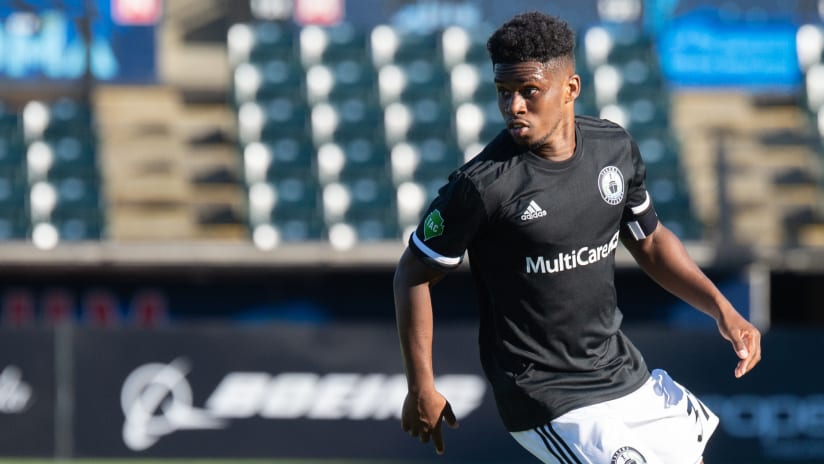Last year I spoke to staffers at academies across MLS for a piece on the rise of residency programs. At the end of my conversation with Larry Sunderland, FC Cincinnati’s director of player development and the former academy director at Chicago Fire FC and Portland Timbers, he pointed to an emerging front in the “Play Your Kids” movement.
“These players that maybe don't fit our model – how do we get them in the shop window of Europe? How do we get them into the other leagues and begin to recoup some of these investments?” he pondered, noting that many promising academy prospects find their progress slowed or halted by stacked depth charts in their positions and other circumstances beyond their control.
“Not only the one pathway of going to the first team, but now how do we move players maybe before they get to the first team?”
I thought of this on Monday when news broke of the Seattle Sounders trading the Homegrown rights to fullback Nick Hinds to Nashville SC for $50,000 in General Allocation Money. By the breathless standards of the winter transfer market, this is not a sexy transaction – Hinds barely got a cup of coffee with the Sounders’ first team, spending most of his time with their S2 and Tacoma Defiance USL squads, and at 23, he’s not exactly a kid anymore.
But look a bit closer and you can see the signs of what Sunderland was talking about.
Born in Jamaica and raised in south Florida, Hinds was spotted and invited to Washington State by the Sounders as a high-school senior. Though he played for Sounders 2 during that time, he kept his amateur eligibility and went on to star for NCAA powerhouse Akron over a two-year college career, then signed a pro deal to become a full-time member of Seattle’s second team in 2018.
He’s primarily a left back, but the Sounders have been stacked with international-caliber options at that spot for years with the likes of Nouhou Tolo, Brad Smith, Joevin Jones and more recently Jimmy Medranda keeping Hinds stuck well down the depth chart. His contract option was declined this winter, Seattle seemingly content to move on – but Nashville are living in a different reality at the moment.
Nashville's academy is in its infancy. It will probably take several years to groom their first batches of homegrowns. So they’re keeping a keen lookout for undervalued talent elsewhere to freshen up their squad in the meantime, as they showed by swinging a trade with the Sounders for homegrown winger Handwalla Bwana last fall, one of several transactions that add up to 14 members of Nashville’s current roster being 25 or younger.
So Hinds is headed to Tennessee, where he will probably get a clearer shot at proving himself in MLS than he did on Puget Sound. If he seizes this opportunity and fulfills his potential, the Sounders will be recognized for their role in his development by the clause that retains a percentage of any future transfer fee he might garner – not bad considering they’d effectively already cut bait.
We’re now seeing a steady stream of homegrowns traded around the league – Bwana, Auston Trusty, Eryk Williamson, Corey Baird and Djordje Mihailovic are some notable examples. You can find a more extensive list here, from my colleague Tom Bogert’s detailed examination of this phenomenon a few months back.
Sometimes the stars just don’t align for a kid to star with their first pro club. But when the club can bring in even a modest haul of assets for those who don’t pan out on the first go-round, it incentivizes them – in a small but significant sense – to keep digging, keep hustling, keep investing. And it’s only fair that young players get another chance in a different situation with a different context.
All this is good for the system as a whole. Not every case will crystallize into a perfect storm like Bryan Reynolds or Brenden Aaronson; there’s a long list of homegrowns past who stagnated on the bench or in the reserves at crucial periods in their development and failed to fully blossom.
Even a modest package of allocation money or other assets can be key to finding outcomes that are beneficial for all involved. Here’s hoping this helps Hinds, and many more like him, find their own pathways to success.














